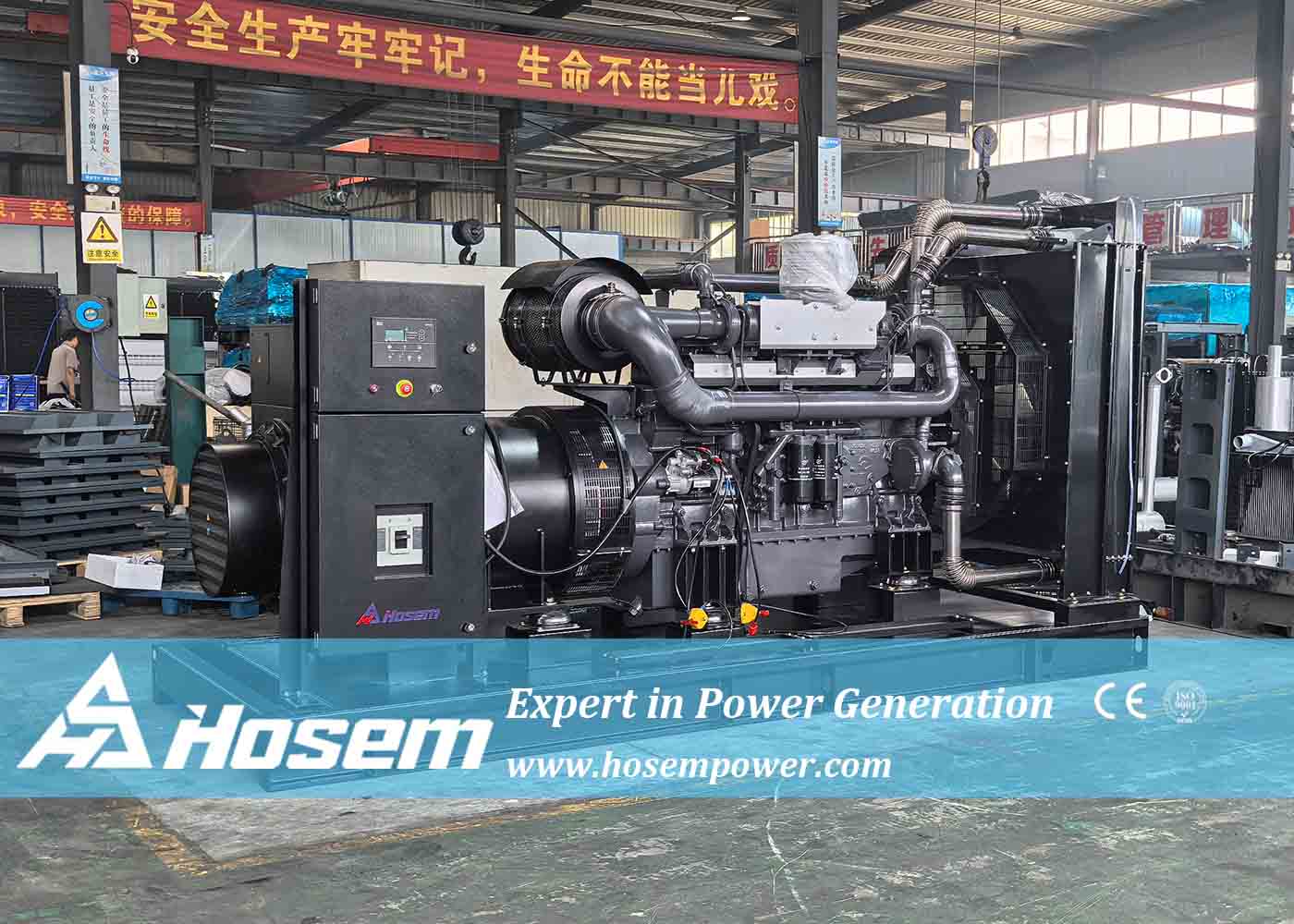-
Tel : +86-591-86397381
-
Email : sale@hosempower.com
-
Skype : +86-13205904365
Tel : +86-591-86397381
Email : sale@hosempower.com
Skype : +86-13205904365

Diesel generator sets are essential backup power solutions widely used across industries including hospitals, construction sites, data centers, factories, and more. As a compact power source driven by an internal combustion engine, a diesel generator ensures uninterrupted power supply during outages or in areas without grid access.
However, during the procurement process, many buyers often wonder: Why do prices vary so significantly even for the same brand or power rating? In this article, we will explore the types, structure, applications, performance grades, installation standards, and most importantly, the factors that affect the price of a diesel generator set.
A diesel generator set (genset) uses a diesel engine to drive an alternator, converting diesel fuel into electrical energy. Its compact size, mobility, ease of operation, and low maintenance make it suitable for both primary and standby applications.
Diesel generators are classified in multiple ways, including:
By fuel type: Diesel-only or dual-fuel gensets
By speed: High-speed, medium-speed, and low-speed engines
By application: Land-use (mobile/fixed), marine, trailer-mounted, and vehicle-mounted
By output voltage & frequency:
AC generators (typically 50Hz or 60Hz)
DC generators
By excitation method: Rotating AC exciter or static excitation
By usage: Prime, standby, or emergency power
By control operation: Manual, remote, or fully automated
By automation: Basic models, automatic start models, microcomputer-controlled units
Diesel generators are used in:
Mining operations
Railways and remote job sites
Road and traffic infrastructure
Factories and enterprises
Hospitals and data centers
Despite lower power output compared to utility-scale power, diesel generators offer flexible deployment, fast response time, and reliable backup or primary power in critical applications.

A complete diesel genset typically includes:
Diesel Engine
Alternator (Generator)
Base frame with built-in fuel tank
Control panel / ATS (Automatic Transfer Switch)
Cooling system (air-cooled or water-cooled)
Muffler / Silencer
Soundproof enclosure (for silent types)
Diesel generators convert chemical energy into electrical energy using the following process:
Clean air enters the cylinder via the air filter.
Diesel fuel is injected under high pressure and mixes with compressed hot air.
The mixture ignites, causing an explosion that drives the piston downward.
The piston’s motion turns the crankshaft.
The crankshaft is connected to a synchronous alternator rotor.
Electromagnetic induction generates AC electrical power.
The entire process is controlled by an intelligent controller that manages safety features, voltage regulation, and fault monitoring.
Diesel gensets are categorized into four performance grades:
G1: Basic applications such as lighting or simple electrical loads
G2: Suitable for pumps and fans with moderate voltage/frequency deviations
G3: Precision equipment like telecoms and controlled loads
G4: High-performance applications such as data centers and computer systems
In China, diesel generator models follow a standard code format indicating:
Rated power (kW)
Output current type (e.g., G for AC, Z for DC)
Type (e.g., F for land-use, FC for marine)
Automation level (e.g., Z for automatic, S for silent)
Design sequence and variation codes
Environmental adaptation (e.g., TH for humid/tropical conditions)
Note: International or joint-venture models may have custom model codes.
Air Inlet: Sized according to genset power
Air Outlet: Must match heat dissipation requirements
Must be properly routed outdoors with a muffler
Exhaust pipe angled 60° or covered with rain/snow caps
A reinforced concrete base is essential
Use expansion bolts to secure the genset via the steel skid base
Engine: ~80% of total cost
Alternator + Controller + Accessories: ~20%
Gensets can be supplied in three configurations:
Fully Internation well-know brand: All parts from the same international brand
Domestic assembly with mixed brands: Engine, alternator, and controller sourced separately
Complete Chinese Brand: Using reputable Chinese brands like Yuchai, SDEC, Weichai, etc.
Installation, transport, commissioning
Exhaust treatment system & compliance certification
Noise control engineering (enclosure + room treatment)
Exhaust ducting beyond the generator room
Generator Set: $80,000
Engine: $60,000
Alternator: $10,000Frame(Container Enclosure): $10,000
Installation: $3,000
Exhaust Treatment: $1,000
Generator Room Noise Treatment: Quote based on drawings
External Exhaust Ducting: Quoted per request
High-end brands like Mercedes-Benz cost ~20% more than mainstream choice
Other JV brands like Perkins, Mitsubishi, Cummins: Cummins is the choice of most people, high economical choice
Top Chinese brands: 15%–30% cheaper than JV/foreign brands: Weichai, SDEC etc.
Domestic brands like Stamford (Wuxi), Marathon (Shanghai), Faraday, and Leroy-Somer (Fuzhou) all priced around $10,000 for 1000kVA
Minimal pricing differences
Brands like SmartGen, Deep Sea, and ComAp
Price differences are negligible due to mature technology
When selecting a diesel generator set, consider not only the brand and rated power but also:
Engine configuration
Application environment
Fuel efficiency and reliability
Control system features
After-sales service and certification
Understanding the technical configuration and cost structure can help avoid overpriced offers and ensure you get the best value.
For more details or quotations, contact us at:
Email: jack@hosempower.com
Whatsapp: +86-13205904365
Tags :